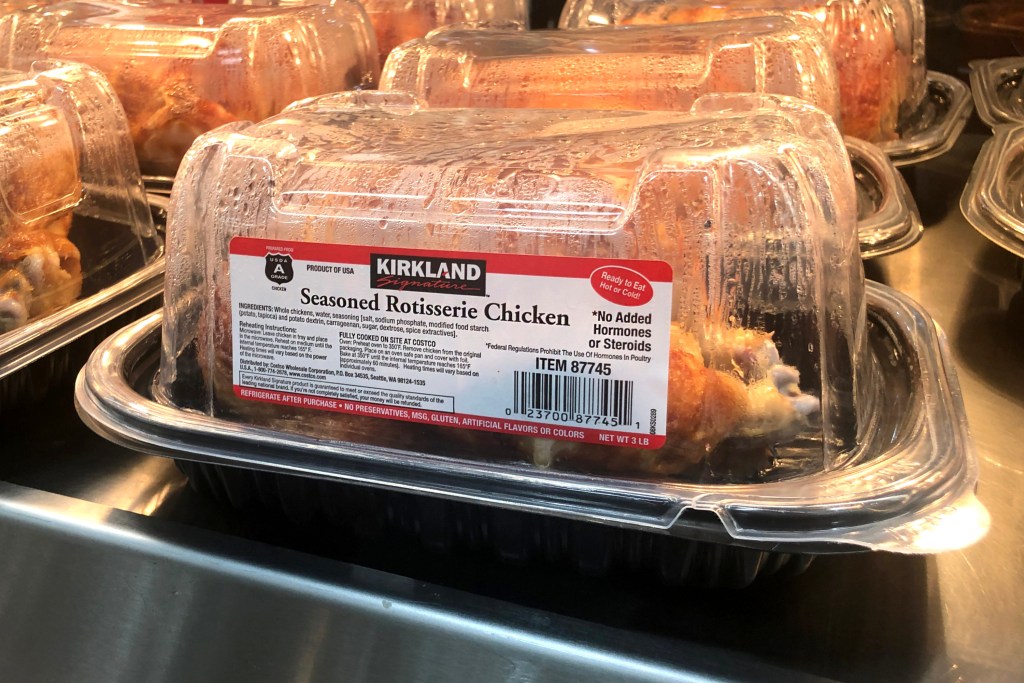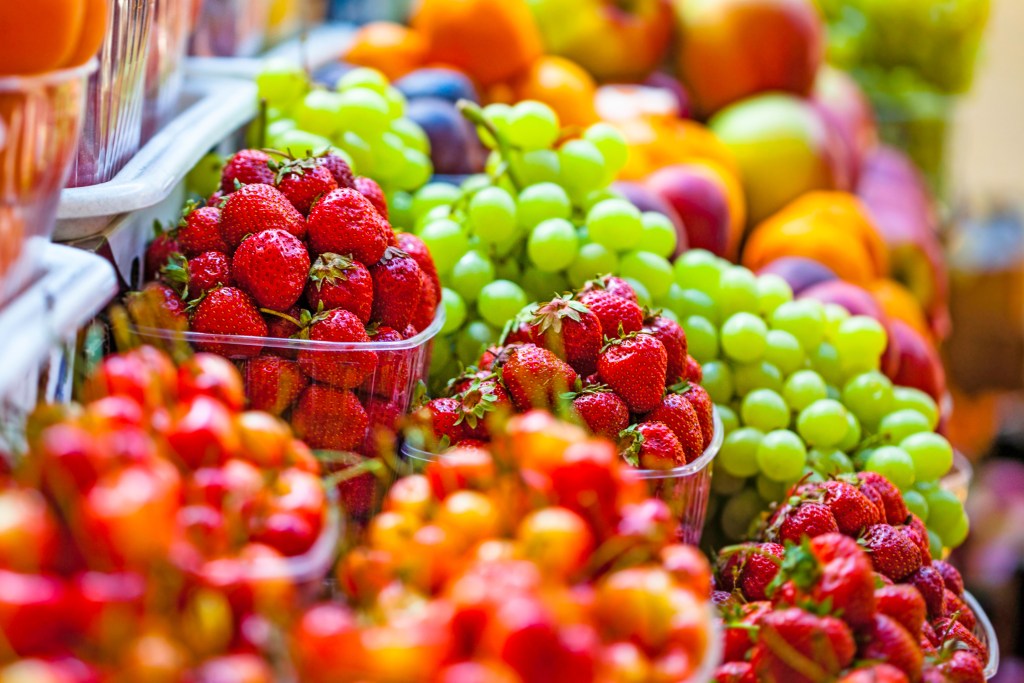We all love shopping at Costco. From the food court to the extra benefits — like the tire center, vision center, and pharmacy — there are plenty of hidden perks of shopping at Costco. But this doesn’t mean you should buy everything there. Here are five things you should definitely put on your Costco shopping list — and four you really shouldn’t.

What you should buy at Costco
Rotisserie chicken
Do we even have to say this one? It’s a ready-to-go meal for the whole family. It costs $5. This isn’t something we should have to talk you into. (You should, however, check out Costco’s other prepared foods and pre-made meals. They’re tasty too, and you can find some good deals.)
Maple syrup
Is there anything better than fluffy, warm pancakes with real maple syrup? Too many syrup options out there today are made with the artificial stuff — highly processed corn syrup or high fructose corn syrup. And when you do manage to find the real deal, it’s pretty expensive. Kirkland’s brand is made with real maple syrup, the kind that comes from the sap of maple trees — and it’s got that signature Costco price. And, according to Epicurious, it holds its own in the flavor department.
Gift cards
Gift cards theoretically should be the same price everywhere — after all, you’re essentially just buying money to spend at another store, right? But at Costco, you can often get them at discounted prices. So be sure to stock up for those last-minute gifts for friends and family. (Or for yourself. We don’t judge.)
Vodka
There’s been a persistent rumor for years that Kirkland-branded vodka is actually produced by Grey Goose. And while those claims have been denied, it kind of doesn’t matter: If you can get a bottle that tastes like it could be high-end vodka to alcohol enthusiasts and taste testers all over, then that’s definitely a brand worth spending $20 on.
Over-the-counter medications
If you and members of your household have to take acetaminophen, ibuprofen, or allergy pills regularly, buying in bulk makes a lot of sense. You’ll likely go through the bottle before it expires, will spend a fraction of the price, and will never be caught without a little relief again. Keep a smaller bottle in your bag (or wherever’s convenient for you) that you refill from the Costco bottle and you’re good to go.

What you shouldn’t buy at Costco
Fresh produce
Listen, we love avocado toast as much as the next person, but how much of it do you really eat? If you’re planning to make a lot of guacamole for your next party (a Super Bowl party, perhaps?) then sure, buy in bulk. But if you’re not, you risk your avocados all ripening on the same day — and then you’ve got a problem.
To be fair, this is true for a lot of fresh produce. If everyone in your family eats a banana with breakfast and you’re fully committed to baking banana bread once they overripen, then go ahead with your bulk buying. But if that isn’t true, you might just find yourself wasting food (and, therefore, money) — which studies have found can be a problem when people try to buy in bulk.
Flour
While flour might seem like the exact sort of thing you should buy in bulk, it’s really not. Flour — regardless of the variety — attracts water… including the moisture in the air. The longer it’s sitting in your pantry, the more moisture it’s sucking up, and that means it’s that much closer to turning rancid and becoming unusable. Whole grain and nut flour only keep a couple of months; while white all-purpose flour is usually good for a year, you have to ask yourself: How often do I really bake? If the answer isn’t daily, you’re going to be throwing out unused flour. (The same is true for baking powder, which has similar moisture issues.)
Cooking oil
This is another one that seems like a no-brainer for bulk shopping — no matter what you’re cooking, you’re likely to have a use for oil. But once opened, oil (regardless of the type) only lasts for one to three months. You’re better off buying smaller quantities. The only exception? Kirkland Signature Organic Extra Virgin Olive Oil. It’s ridiculously inexpensive compared to competitors and comes highly recommended by experts.
One more shopping tip? You shouldn’t buy foods that are high in oil — like nuts — in bulk either.
Soda
It’s definitely tempting to go nuts buying soda at Costco, particularly if you’re stocking up for a party or barbecue. However, soda is a known loss leader for supermarkets — which means they often slash the prices below cost to get you in the grocery store. Once you’re there, they’ll likely profit off of all of the other stuff you buy. What does this mean? Some of the best money-saving deals for soda are at your local supermarket.
Shopping at Costco can be a great experience — just make sure you’re buying the right kinds of products. You don’t want to end up wasting money buying items that will expire before you get a chance to use them, but if you plan your shopping list right, you’ll end up getting a great deal.



